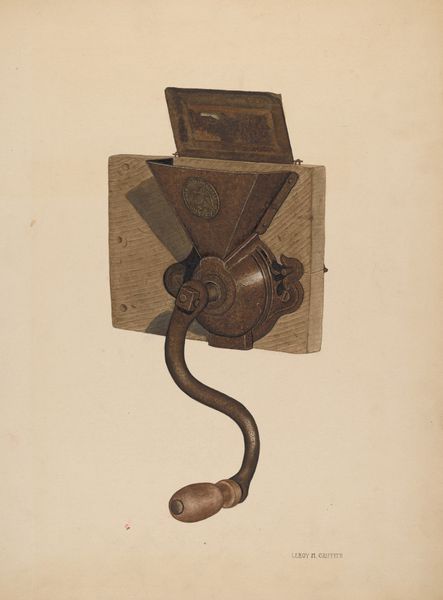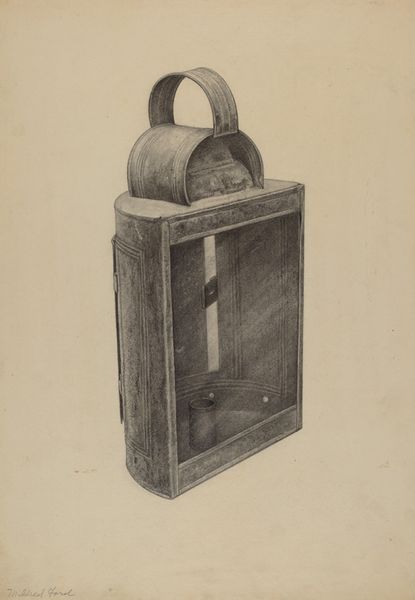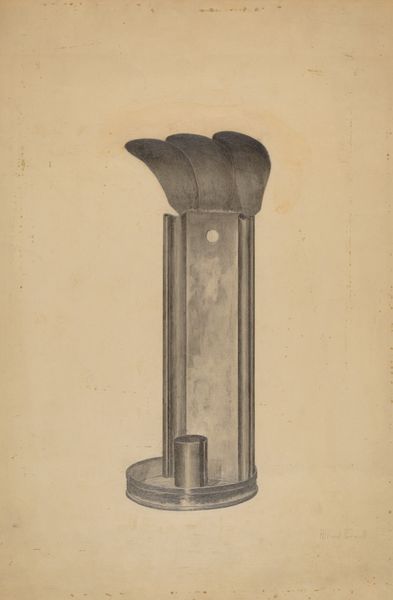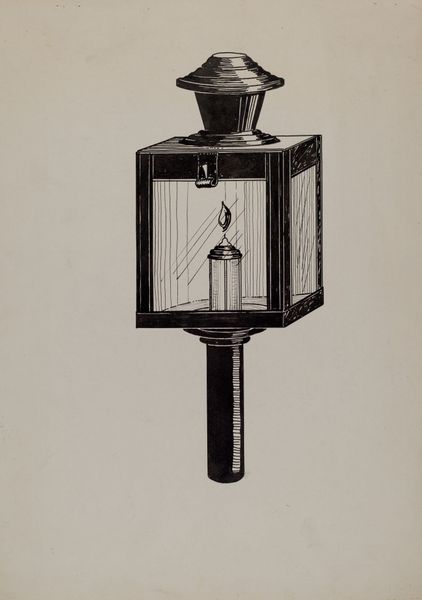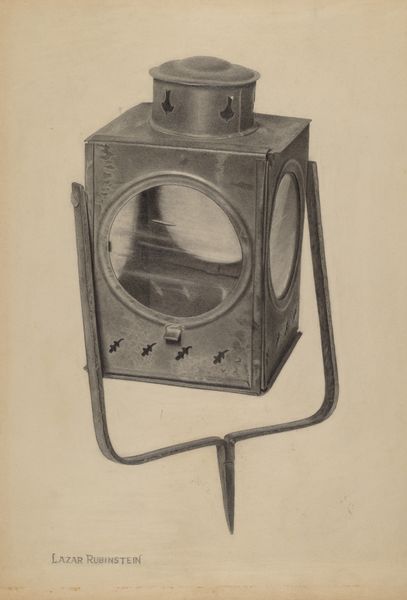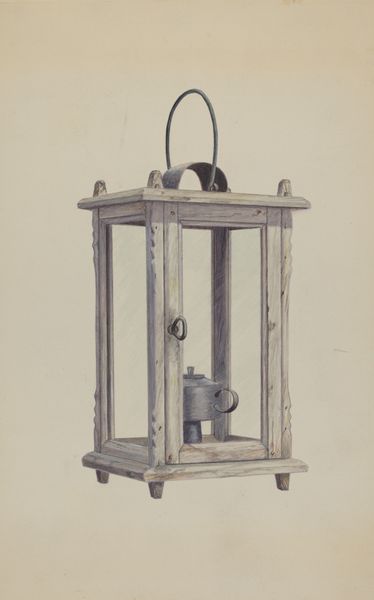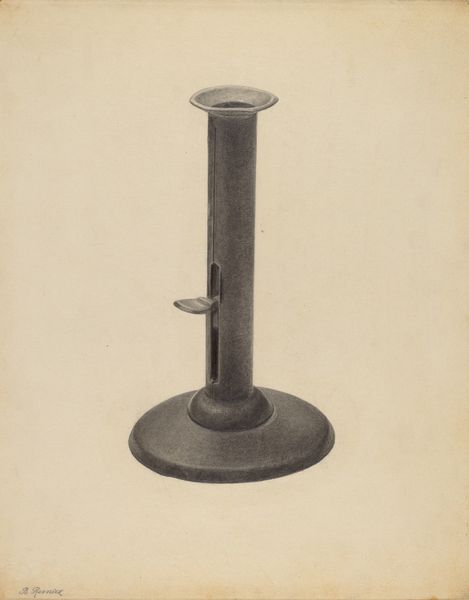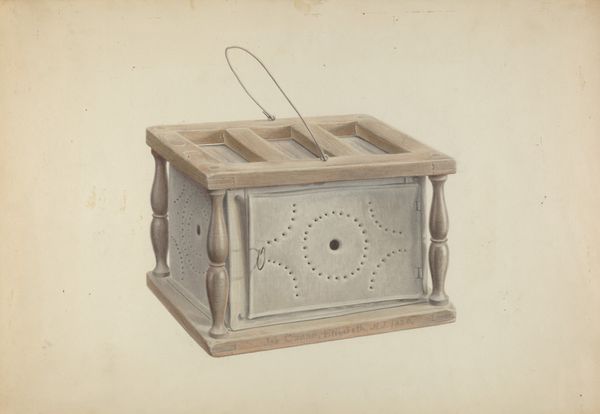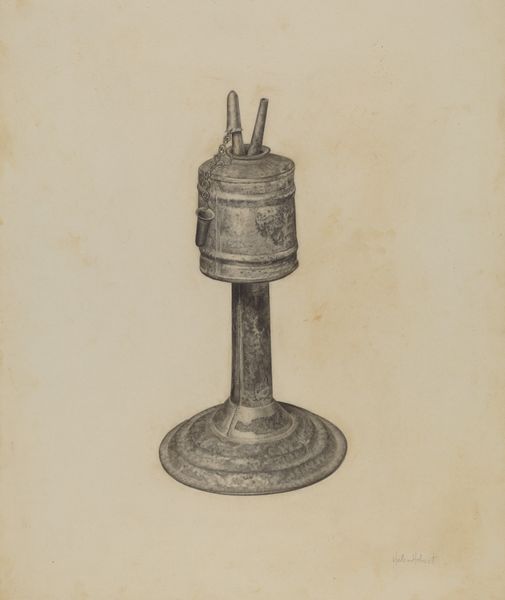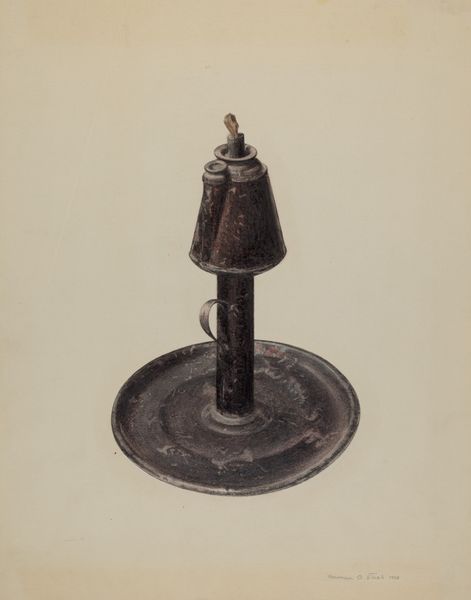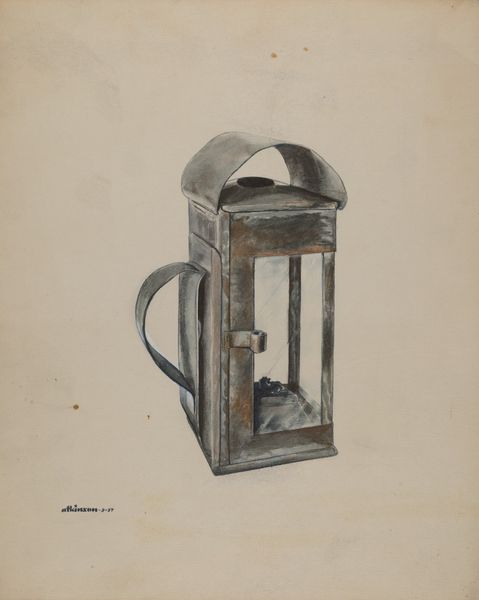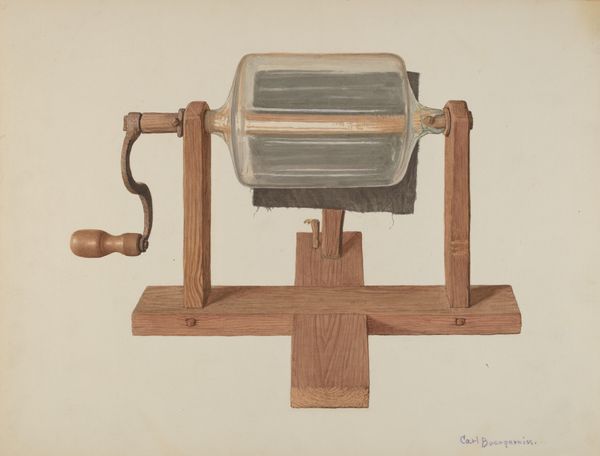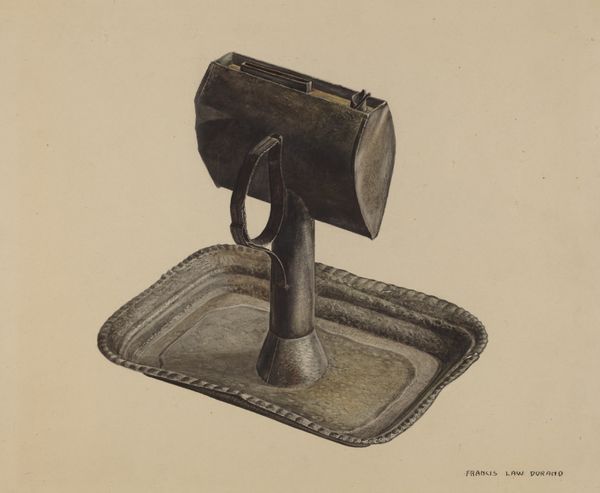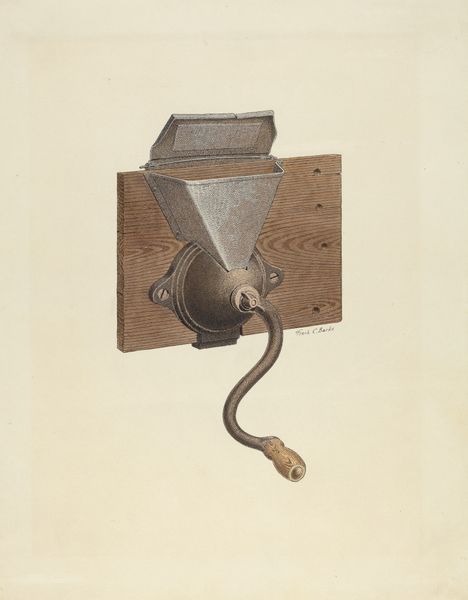
drawing, charcoal
#
drawing
#
landscape
#
charcoal drawing
#
portrait drawing
#
charcoal
#
realism
Dimensions: overall: 35.5 x 27.9 cm (14 x 11 in.) Original IAD Object: 13" wide; 37" high
Copyright: National Gallery of Art: CC0 1.0
Curator: Looking at Marjorie Lee's drawing, titled "Mail Box", made around 1937. It is made in charcoal, so, it's really more of a sketch or study than a fully realized painting. Editor: It feels oddly… melancholy. It's such a mundane object, yet isolating it like this gives it this weighted quality, like some silent sentinel. Curator: Well, think about what the mailbox signified then. In the late 1930s, it's post-Depression America, but also pre-World War II, right? Rural communities might depend on that mail for vital information and resources. The Farm Security Administration hired many artists at that time, it was also an entry point for a lot of women to engage in this industry... Editor: That’s true. And I bet mail-order catalogs held immense value then, representing consumption. Though the meticulous detail in the wood grain suggests an artisan, craftsman even. Not only the box, but even the base... it feels quite substantial for what it is. It is solid. There's no flourish, it is sturdy. It speaks to ideas of labor, production, value, making it both functional and yet rendered precious through close artistic observation and drawing. Curator: Exactly! A utilitarian object imbued with meaning through art. Marjorie Lee shows the everyday and, in doing so, gives value to both its form and its function, its message and its physical place. Think of this alongside Let Us Now Praise Famous Men by Agee and Evans, but from the perspective of a woman artist... Editor: It invites us to re-examine how we value ordinary objects, too. How they function not just materially, but within broader cultural systems and visual economies. The craftsmanship, when emphasized by Lee's touch, feels very pointed. Curator: Absolutely. Looking at this artwork in intersection with historical labor and gender during a particularly tough socio-political time makes you appreciate what it can really convey, doesn't it? Editor: It truly does. Now I look at it with a renewed appreciation for the material conditions behind that stolid little box.
Comments
No comments
Be the first to comment and join the conversation on the ultimate creative platform.
